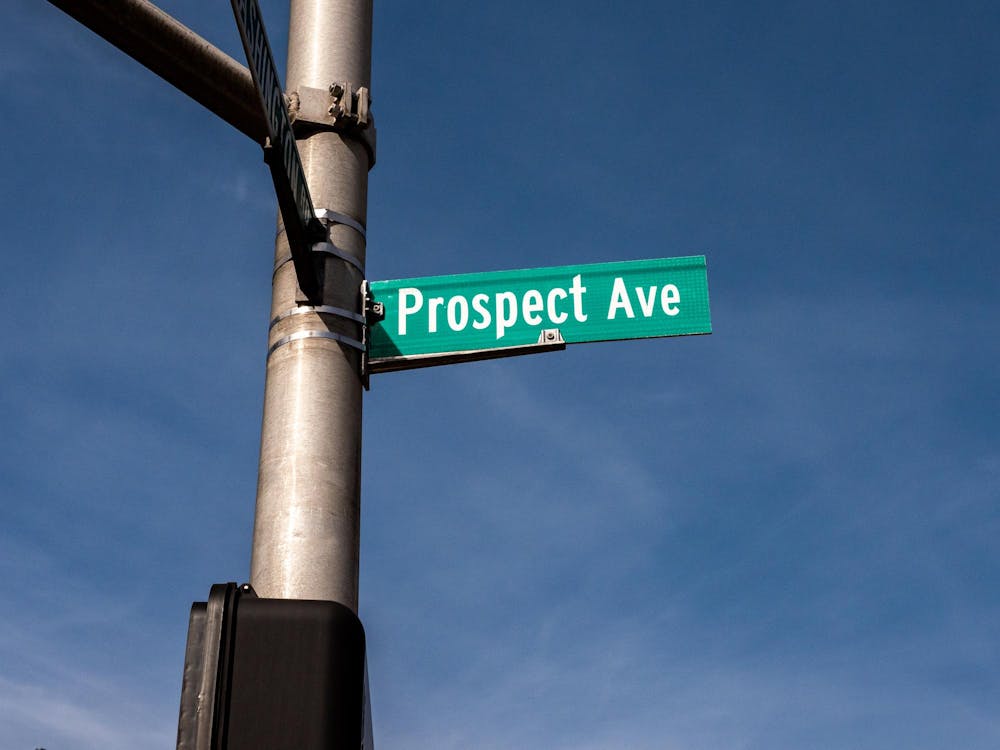Every semester is the same: Students enroll in an English class they want to take and come home from the U-Store with about 10 books. Add that to the 12 they just bought for politics, the bulky psychology textbook worth $90 and the several other books they just added to the pile for their fourth class — and maybe even others if they are engineers — and they limp back to their dorm rooms with heavy bags and light wallets.
After trying unsuccessfully to prox themselves in without dropping their books, they struggle to pull our their keys to finally get into their rooms. Once inside, they dump their books on the floor and collapse in a sweaty heap.
Some professors tend to load students up with books. Not only are they expensive, but they invariably take up a lot of space in small dorm rooms.
Students might have dreamed that one day they would not have to fill their backpacks and bookshelves with so many volumes. And that day is near, because one of the newest waves of consumer technology is the eBook.
An eBook is a book in electronic format, purchased over the Internet and downloaded to a personal computer or portable device that is specially designed for reading these virtual texts. Though they are being marketed to the general public as a more advanced medium for weekend reading, the possibilities are far greater for educational applications.
The most obvious problem with eBooks is that people may be too wedded to the idea of reading books made from paper. But college students — who are on the cutting edge of gadgets with their Palm Pilots, cell phones and ultra-fast Internet connections — may be more likely to try the new eBook technology than their parents.
In the past year, Worth Publishers — an educational press — has begun to convert some of its textbooks to electronic formats, said Reid Sherline, vice president of electronic media and publishing for the company. Though he said it is too early to tell whether the company's test has been successful, he added, "There's no question that educational content is constantly moving."
"We're just getting our feet wet," Sherline said. "There's no evidence yet that students will buy electronic versions of textbooks, because it hasn't happened yet. But we want to be ready."

The slow speed at which educational publishers like Worth are creating electronic versions of their texts is another problem. Sherline admitted his company has converted only a fraction of its database.
As a result of the lack of texts that are available electronically, virtually all professors and students on the Princeton campus have yet to dabble in the technology. Some professors at schools such as Harvard and MIT, however, have begun offering the texts of their courses in electronic format.
Serge Goldstein, director of academic services at CIT, said he is not aware of any professors at the University who give their students the option of purchasing electronic versions of books listed on their syllabi.
However, he said in purchasing the new version of the CourseInfo software, his office was aware of the possibility that professors may want to have the option of letting their students download eBooks.

"Starting next fall, we'll be able to offer professors the capability, who want to offer eBooks over our site," Goldstein said. "The extent to how much it gets used is a big question."
He added that he predicts the system will help professors only in limited situations. "I don't see any kind of wholesale conversion, but in places it can be helpful," he said. "The big area is supplemental materials."
Two sides have developed in the eBook industry. The first is made up of publishers and electronics companies that see the future lying in the spread of portable devices for reading eBooks. But some software companies and other publishers — who see the devices as too costly — predict eBooks will catch on as downloadable files to be read on a PC.
Proponents of the portable device cite convenience, comfort and storage capabilities as the main upsides to the gadget. But naysayers, though they acknowledge the advantages of the machines, say they will never become popular because of the high cost. In addition, they point out that virtually every college student has access to a PC and is therefore equipped to read downloadable versions of their textbooks.
Sherline agrees with this sentiment. He said portable eBook devices do not provide enough perks to justify the high price tag.
"My gut is telling me that the portable devices won't fly," he said. "If you're a student, why would you spend $700 for a single-purpose device?"
Tom Morrow, a spokesman for Gemstar-TV Guide International — the company that makes the two leading portable devices — disagrees. He contends that as the technology spreads and the price of the machines fall, they will become more common.
"In the future, millions of students will be using eBooks for their curriculums, but not in the immediate future," Morrow said. He added, however, that his company is working with companies like Follett — a firm that provides services to students and teachers at more than 110,000 schools and universities — to spur the spread of electronic texts.
He said it is difficult to make a wide range of college texts available because they differ by school. "The first wave of pilots will be at the graduate level. For example, by taking a law textbook you could cover 90 percent of the market," Morrow said. "The problem with universities is that curriculums are so decentralized."
He added, "The first wave of undergraduate pilots will be of innovative universities who want to make electronic books a widely available option for students."
Morrow also said that having students own one device that stores all of their books is the most sensible thing to do. "Making 80-pound students carry around 50 pounds of textbooks is objectionable," he said.
He went on to say that opponents of his company's technology are misguided, and that reading texts on the portable device is much healthier than reading off a computer screen.
"Reading on laptops is also objectionable, though it's a great reference tool," Morrow said. "In terms of reading a novel, it's inhumane to ask someone to read for long periods of time on a PC. It's unhealthy."
According to Morrow, Gemstar is set to discontinue its two models, the Rocket eBook and the SoftBook Reader, in favor of two new devices using new technology. However, these gadgets will be produced under the RCA brand name through a licensing partnership between Gemstar and RCA's parent company, Thomson Multimedia.
The first is a black-and-white machine with a 5.5-inch screen. The device, which is estimated to retail at $295, weighs 17 ounces and comes with storage space for up to 8,000 pages, roughly the equivalent of 20 books. The higher-end device has an 8.5-inch color screen, with standard memory of 5,000 color pages. This machine will sell for approximately $695. Users of both these devices will be able to underline the text, write margin notes and make bookmarks on the screen. RCA hopes to boost sales numbers by placing the product in chain stores such as Best Buy and Circuit City.
Currently, there are approximately 5,000 titles available to read using these RCA devices.
Though the machines have large storage capabilities, several students said they doubt they would buy one at the current prices. Pete Thurston '02 said despite the advantages the machines offer, he is not sold on the concept.
"I don't know if I would spend the money for it," he said. "It seems like it is too expensive for the benefits you get from it."
WizeUp Digital Textbooks offers nearly 100 textbooks for PC downloads. One book the company is planning to release is "Economics" by William Baumol and University Professor Alan Blinder. Professor Elizabeth Bogan uses this textbook in ECO 101: The National Economy, which she is currently teaching.
Bogan said she was unaware of the development and wondered if the technology did more harm than good. "I don't think the electronic way is a particularly good way to disseminate the textbook," she said. "If it's on-screen, you can't underline, make margin notes or extend graphs."
She added, however, that if the electronic version is released by next fall, she will tell her students about it despite her reservations.
"I've yet to be convinced that reading a book electronically is superior to reading a real book," Bogan said. "But if there's an alternative, I'd list it on my course outline."
Though she doubts the merits of the PC-viewable books, she said the portable device — for personal use — could be a step in the right direction.
"I'm a compulsive reader. On a given vacation, I take four or five books with me," Bogan said.
But before publishers are ready to make their most valuable books available in downloadable format, the issue of piracy must be addressed. The last thing these companies want to see is a book-trading network like Napster be born.
Morrow said he believes the portable device system is much safer. "Publishers are very comfortable with what we're doing, but not with GlassBook or Microsoft Reader for the PC" — two free software programs that allow users to read selected texts — he said. He cited the example of Stephen King's "Riding the Bullet," which was hacked the first day of its release.
"The key is in the reader," Morrow explained. "You can only open the book with a reader, which nobody has been able to hack yet."
Julie Keck, senior marketing manager at McGraw Hill Primis Custom Publishing, another e-publisher, said her company's downloads, which are meant for the PC, are also safe. She said the files are viewable through Adobe Acrobat Reader.
"We have a lot of security measures in place where it gets locked into the hard drive. It would take a pretty brilliant student to break into it," she said. "We're really confident about the security."
She added that her company's electronic textbooks are sold at a 20-percent discount from the real versions.
Sherline, whose company, Worth, also instructs users to open the downloads with Adobe Acrobat, said though the security is effective, the files are valid on only one computer. "The problem is that it's not portable for you from computer to computer," he said.
Only time will tell whether this new technology — either the portable device or the PC-viewable document — catches on with college students and their professors. The latter is likely to spread faster because there are no startup costs, except the price of the book. However, the general public will probably not invest large amounts of money in books they can read only while sitting at their computers.
One possibility for the portable book market is the integration of books and the Internet. Though the current devices can connect to the Internet through a phone line, a wireless connection would be more attractive.
There is considerable interest in the technology. It may die out before making a comeback, just as the personal digital assistant industry did during the transition period between the Apple Newton and the Palm Pilot. Yet the fact remains that in this market, just as in others, improvements are always welcome. The questions remains, however: Is this technology a step forward or backward?
What is true, though, is that if the technology can be mastered, and the words on screen appear to be as crisp as those on the printed page, the crowded and stressful scene at college bookstores could be made obsolete. So could backpacks. Don't be surprised if in 10 years students carry books that are stored inside a portable gadget that is actually an entire bookshelf.







